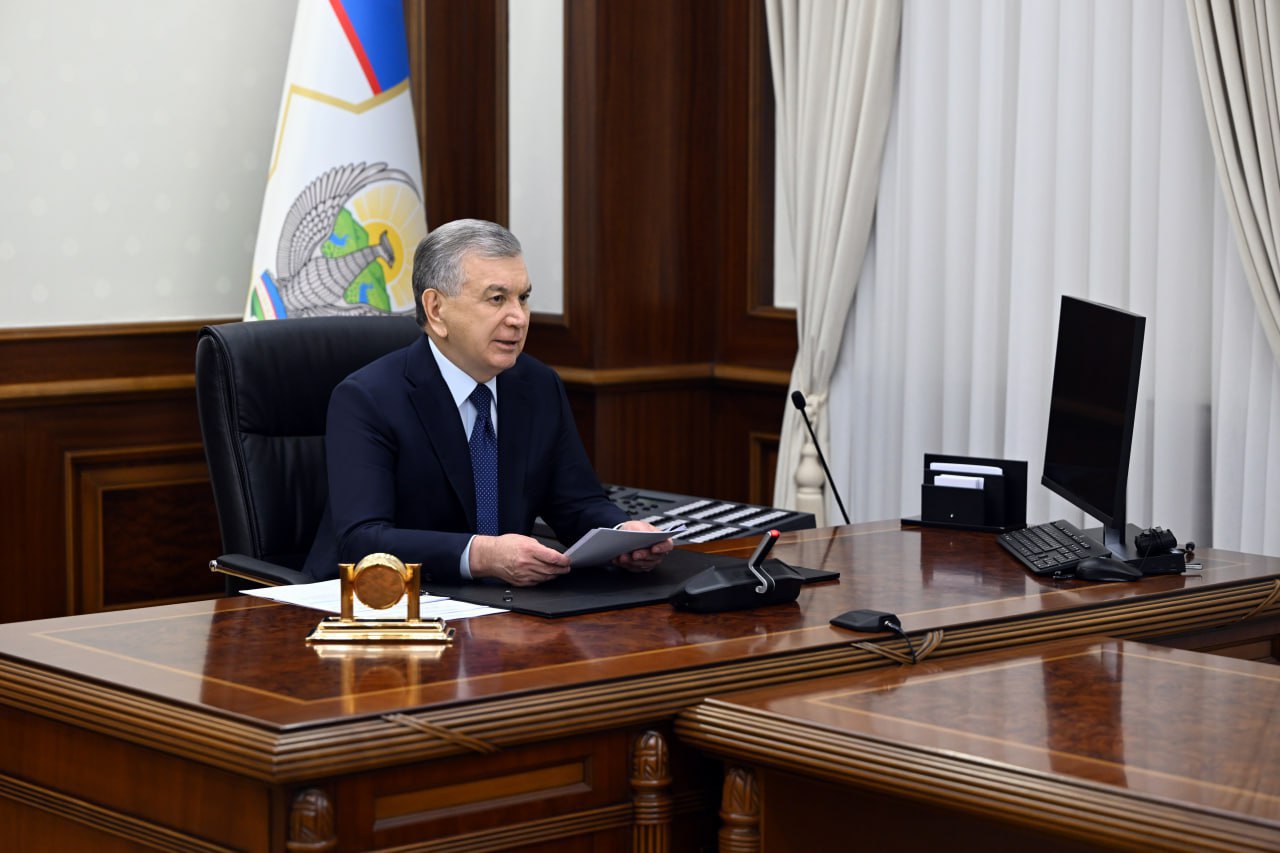Actual Speech!
31.01.2025

The state program project – our action plan
On January 27, 2025 the President of Uzbekistan Shavkat Mirziyoyev, in a meeting on the state program project "Environmental Protection and the 'Green Economy' Year," paid attention to these issues.
The negative consequences of climate change are clearly noticeable worldwide, and this requires a transition to an ecologically clean economy in our country as well.
A state program project was developed in this regard and underwent a public discussion for a month. Over 11 million citizens familiarized themselves with it, and more than 100 proposals were selected. The United Nations agencies and other diplomatic missions expressed their readiness to collaborate.
It is well known that one of the core issues of the state program is energy. It must be acknowledged that due to recent rapid developments, the share of "green" energy in the country's total power generation reached 16%. This year, it is planned to increase it to 26%. For this, 16 large solar and wind stations with a total capacity of 3.5 gigawatts, 5 large hydropower stations with a capacity of 160 megawatts, and 1.8 gigawatts of energy storage capacities will be launched.
The President additionally instructed the creation of projects with a capacity of 1 gigawatt. All of these initiatives aim to benefit the people and improve their well-being.
"Green economy" not only involves developing clean energy but also increasing energy efficiency across industries. Reflecting on the issues raised during the meeting, several thoughts come to mind.
To improve energy efficiency in industries under the conditions of a "green economy," the following measures will need to be implemented:
First, there must be the introduction of low-energy-consuming equipment and technologies in the industrial, transport, and housing-communal sectors. Next, there should be a wide implementation of renewable energy sources such as solar, wind, biogas, and hydroenergy.
Moreover, Smart energy systems – the introduction of intelligent electricity grids (smart grids), full automation of energy consumption control, and energy efficiency must be fully realized.
At the same time, insulation and modernization – improving thermal insulation and modernizing old energy infrastructures – will be necessary to address these challenges. It must also be emphasized that evaluating energy efficiency and setting clear energy efficiency standards for enterprises and organizations is a modern necessity. Naturally, investment and financing – attracting funds from the state and private sectors for the development of the green economy, as well as providing subsidies and tax incentives – must be managed under careful control. This requires education and awareness-raising efforts. That means informing the public and business representatives about the importance of energy efficiency and training specialists. These measures aim to improve energy efficiency in industries and ensure overall ecological sustainability.
This year, the goal is to maintain at least a 6% economic growth rate and increase GDP to over 125 billion dollars, which is noteworthy. Achieving this goal requires not only efficiency and thrift but also strong oversight.
Therefore, the Deputy Prime Minister – Minister of Economy and Finance has been instructed to develop a program to reduce costs by 15-20% through energy efficiency and increase added value.
Our leadership emphasized that the time has come to transition to a resource-efficient economic model. In the sectors mentioned, the goal is to save resources, develop industries that use less energy while generating high added value.
Another important issue raised was the "Green Space" program, which involves dynamic tasks. Every year, 200 million trees are planted. In the past three years, 698 gardens and 316 public parks have been established. Almost 2 million hectares of wasteland have been restored in the dried bed of the Aral Sea.
Building on this, 18 forest enterprises specializing in reforestation will be established this year. Within them, genetic selection work will be intensified under the principle of "science-project-practice," and seedling laboratories, intensive experimental plots, and "mother" plantations will be organized.
This year, these enterprises will prepare 123 million saplings. The "Green World" platform will be launched, allowing online purchasing of saplings. To implement this fully and efficiently, attention should be focused on these issues. Achieving the dynamic tasks within the "Green Space" program is essential.
To improve the ecological environment, efforts will be made to expand and restore forest areas, increase green spaces in rural and urban areas, and plant trees to improve air quality. Climate adaptation, preventing soil erosion, and avoiding desertification while preserving local plant and animal life, as well as creating ecological gardens and reserves, will also be necessary. In cities, the increase of eco-parks, vertical gardening, and street trees, as well as expanding ecological transport and bicycle lanes, raising public awareness of ecological culture, strengthening environmental education programs in schools and universities, alongside energy and water conservation, improving and automating irrigation systems, and promoting water-saving technologies will be crucial.
Indeed, some of these actions have already been carried out in certain regions. However, it is clear to all of us that these efforts are not yet sufficient or effective enough. These tasks are essential to ensuring the success of the "Green Space" program and enhancing ecological sustainability.
At the meeting, it was emphasized that those who plant trees and use eco-friendly equipment and materials in production will be granted the status of "green entrepreneurs." Frankly, this is a good initiative.
At the meeting, officials also provided information about the tasks in the state program project and their implementation plans.
At present time we must commit to these tasks and begin seriously working on them. If we want to see our country among developed, advanced nations, it is time for each of us to approach this with sincerity and feel a sense of responsibility.
Rakhimboy JUMANIYOZOV
Professor of "TIIAME" National Research University,
Member of the Writers and Journalists Unions of Uzbekistan

